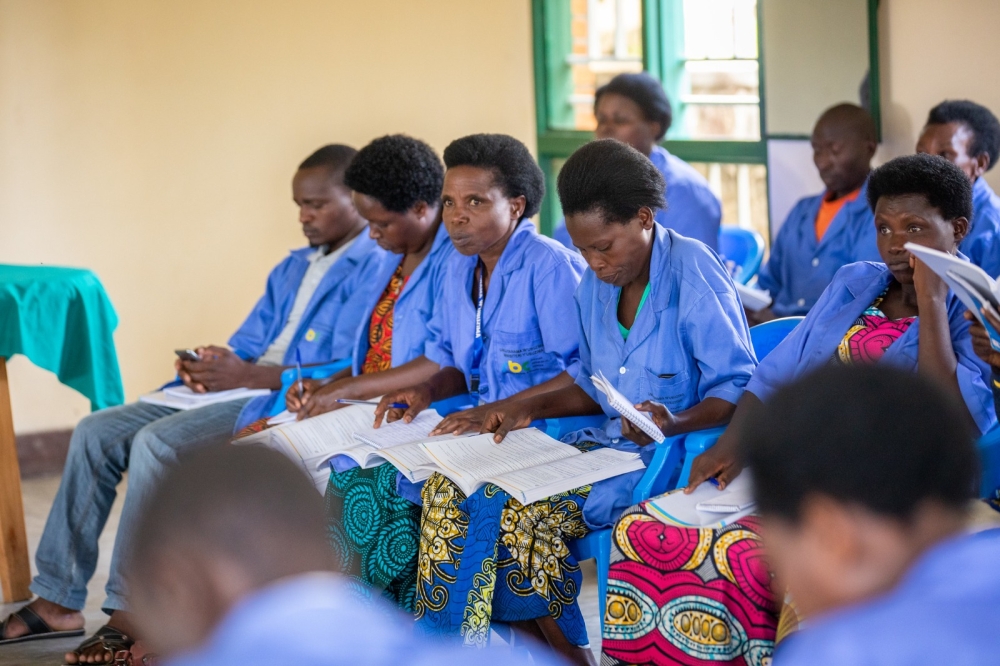

In the past two decades, great strides have been made in thinking about the correct ways to improve the lives of millions of people around the world. In these efforts, an important concept is the critical importance of people and communities themselves participating in these decisions, and in the implementation and management of many basic public health endeavours. This participation is now recognised as both a basic right of communities and of central importance to the success of health programmes.
Rwanda has made impressive strides in improving public health in recent years. The country has successfully implemented a number of programmes aimed at preventing and treating diseases and improving the overall health of its people. We have seen a remarkable improvement in the expected lifespan for Rwandans.
However, despite these efforts, there are still certain persistent challenges that need to be addressed. One potential solution is to tap into the power of the community as a support system for public health interventions. We clearly see the involvement of communities in areas such as agriculture, local government, community policing and other areas.
Primary healthcare is a healthcare approach that focuses on providing comprehensive, accessible, and community-based healthcare services to individuals and families. It emphasises prevention, early detection, and management of common health problems, and it is delivered by a team of healthcare professionals such as doctors, nurses, and allied health professionals.
The successful Covid-19 response in Rwanda was also rooted in community involvement. It was based on primary healthcare infrastructure like district hospitals and health centres, and proactive measures such as a nationwide lockdown and strict adherence to public health guidelines.
There may be a lack of skill and other challenges within the community, but certain simple interventions from the community will go a long way to ensuring the community as a whole provides itself with tools to have a healthy and vibrant environment.
Indeed it might be argued that, given the appropriate mechanisms and support, the knowledge needed to radically improve the health of the majority of the population already exists, and that is what is mainly required to achieve the massive, widespread involvement of people themselves.
Community participation can, therefore, be seen as a vehicle to rapidly improve health services for the majority of the community. When communities understand that a lot of their health status indeed starts from themselves, they become willing to invest labour, time and other basic resources primarily in preventive measures, this creates a cost-effective way of the extension of healthcare within communities.
Rwanda started the national Community Health Worker model in 1995 at the cell level and these workers mainly focused on health promotion and referral services. Today the model has more than 45,000 individuals with a wider scope of work, mainly around the health of mothers and young children, this creates an essential strength to primary healthcare services within communities.
Community health workers (CHWs) play a critical role in engaging communities in health initiatives. They are often known and trusted members of their communities, and their knowledge and understanding of the local communities enable them to establish strong relationships with community members.
Community involvement in public health has been shown to be an effective strategy in many places and it’s also a strategy recommended by the World Health Organization. By engaging community members, health professionals can gain valuable insight into the health needs and concerns of the population. Additionally, community members can serve as trusted advocates for public health initiatives, helping to spread awareness and promote healthy behaviours resulting in better health for Rwandans.
Interventions within the community are critical to improving community health, these interventions should also be designed, implemented and evaluated with the participation of the community. In Rwanda, we see a persistent challenge of stunting in children and one of the cost-effective and home-grown nutritional solutions has been the ‘akarima k’ igikoni’ (home gardens) that can easily provide supplement food supply to families, especially those with younger children.
Community-based environmental interventions, such as clean-up campaigns during Umuganda and mosquito control, prevent the spread of infectious diseases through draining standing or stagnant water where mosquitoes breed and can help reduce the risk of mosquito-borne diseases like malaria.
Education programmes and community-based health screenings that teach community members about healthy lifestyles, disease prevention, early identification of certain health conditions and management can be effective in improving health outcomes. These programmes can be delivered in various forms, such as awareness campaigns, radio programmes, theatre or plays and many others.
The involvement of communities will help to ensure that health interventions are appropriate, relevant to the community’s needs, and tailored to their correct local context. Community involvement also promotes ownership, deeper engagement, sustainability and participation, which can increase the uptake, reach and impact of health interventions.
Dr Vincent Mutabazi is an applied epidemiologist
Twitter: @VkneeM


